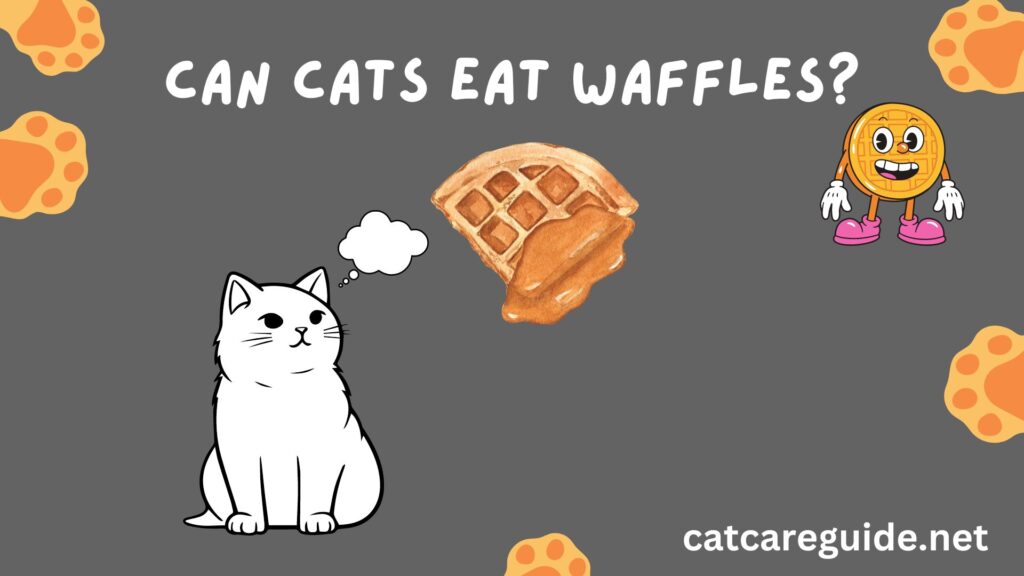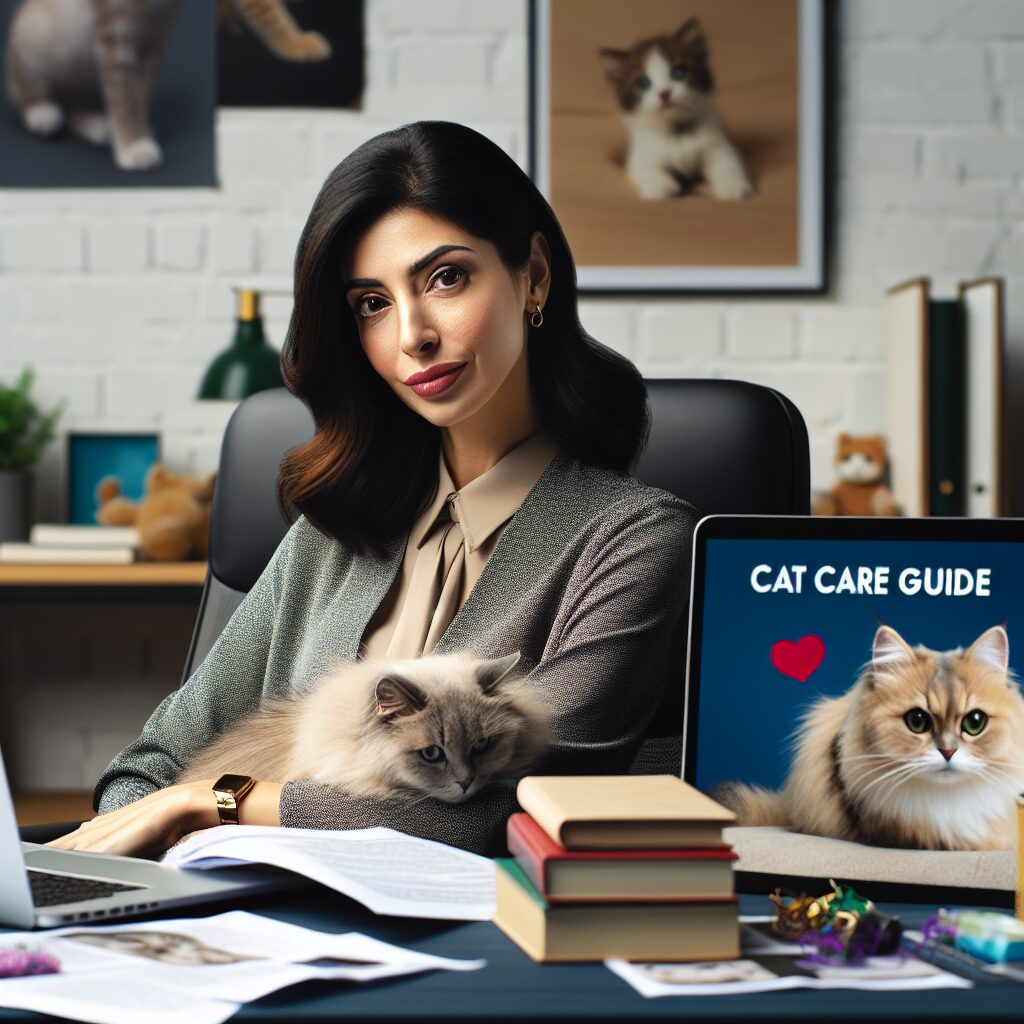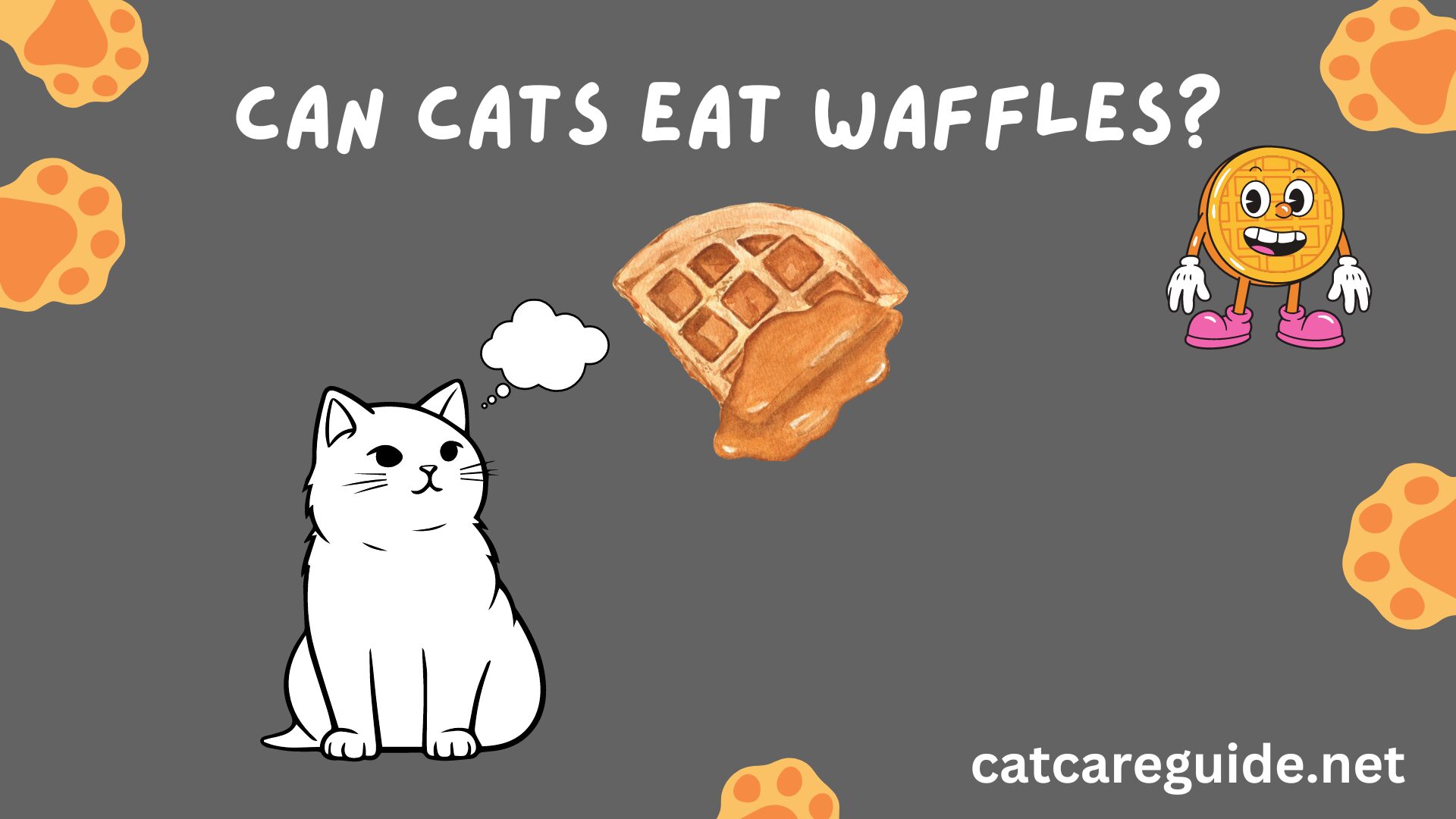
As a cat owner, you likely want to share tasty treats with your furry friend. You may wonder, can cats eat waffles? What about leftover Belgian waffles from Sunday brunch or a few bites of your frozen Eggo? Before sharing your breakfast, read this veterinarian-approved guide on the safety, risks, and healthier alternatives to feeding waffles to cats.
Are Waffles Safe for Cats?
The answer isn’t black and white. Plain waffles without syrup or toppings are generally safe for cats to eat in small amounts as an occasional snack. However, there are a few health and safety factors to consider before freely giving your cat waffles:
- Choking risk: Cats could choke on larger pieces of waffle if they swallow them whole. Be sure to tear any waffles into tiny, bite-sized pieces first.
- Weight gain: The carbs and fat found in waffles could lead to obesity if fed too often. They provide empty calories with little nutritional value.
- Digestive issues: While some cats tolerate milk and grains, waffles may cause stomach upset, vomiting, or diarrhea.
- Toxic ingredients: Flavored, artificially-colored waffles may contain xylitol or chocolate, both extremely toxic to cats.
So while an occasional plain waffle nibble likely won’t harm your cat, it’s best not make it a regular part of their diet.
Are Certain Waffles Safer?
Yes, some waffles are less risky due to fewer additives and artificial ingredients:
- Plain homemade waffles made from scratch with cat-safe ingredients like whole grain flour, eggs, and milk are your safest bet.
- Dry or frozen plain waffles are typically safer than pre-made frozen waffles with syrup and toppings. Always check the label carefully first.
- Avoid artificial flavors, colors and preservatives. Also shun any waffles listing xylitol, chocolate or other known toxins in the ingredients.
Health Concerns with Feeding Waffles to Cats
While the occasional nibble of plain waffle likely won’t harm your cat, regularly feeding waffles can pose the following feline health risks:
1. Obesity and Diabetes
Waffles offer little nutritional value beyond empty carbs and fat. Feeding waffles frequently can quickly lead to weight gain and obesity. According to the ASPCA, obese cats have a higher risk for diabetes and related issues like urinary tract infections.
2. Nutritional Deficiencies
Waffles lack the protein, vitamins and minerals cats need to stay healthy. Relying on waffles as a dietary staple can lead to nutritional deficiencies over time.
3. Dental Issues
The sugar and carbs in waffles can negatively impact your cat’s dental health by promoting tooth decay and gum inflammation.
4. Digestive Problems
While most cats tolerate grains, some develop digestive upset after eating wheat-based foods like waffles. Signs include vomiting, diarrhea, constipation, gas or loss of appetite.
5. Toxic Ingredients
Flavored and artificially-colored waffles may contain life-threatening ingredients for cats like xylitol or chocolate. Even small amounts can be lethal without swift vet treatment.
Healthier, Cat-Safe Treat Alternatives
While an occasional nibble of plain waffle likely won’t harm your cat, there are many healthier, cat-safe snack alternatives including:
- Shredded cooked chicken or tuna (no salt or oil)
- Commercial cat treats made from meat, fish or cheese
- Small pieces of plain cooked egg
- Plain popcorn (no butter or salt)
- Unsweetened shredded wheat cereal
- Steamed vegetables like carrots or broccoli
Rotate these healthier treats into your cat’s snack routine instead of offering waffles regularly.
At What Age Can Kittens Eat Waffles?
Kittens under one year old have developing digestive systems that are extra sensitive. The American Veterinary Medical Association (AVMA) recommends avoiding any table scraps for kittens, especially sweets like waffles which can cause diarrhea.
Stick to kitten formula, wet and dry kitten food only for cats under 12 months old. Their growing bodies need proper nutrition not empty waffle calories. Once your cat reaches adulthood, an occasional plain waffle nibble should be safe.
Signs of Illness After Eating Waffles
Monitor your cat closely if they snack on waffles. Stop feeding them immediately and call your vet if you notice any of the following:
- Repeated vomiting or diarrhea
- Loss of appetite for over 12 hours
- Lethargy, weakness or depression
- Sudden weight gain
- Signs of choking – drooling, pawing at the mouth, difficulty breathing
These symptoms suggest your cat has an intolerance and requires veterinary attention. Catching issues early can prevent serious complications.
Ask Your Vet About Special Dietary Needs
Certain cats should avoid waffles completely due to health conditions that require specialized diets:
- Diabetic cats – Cannot process excess carbs and sugar
- Overweight cats – Prone to obesity; waffles provide empty calories
- Food allergies – Wheat is a common feline allergen
- Sensitive stomach – Waffles may cause digestive upset
- Urinary issues – Carbs can worsen some urinary tract conditions
Before ever feeding your cat waffles, ask your veterinarian if it’s appropriate given your cat’s medical history and dietary restrictions. Provide details on what type of waffle and ingredients to see if a small nibble may be safe.
The Verdict: Should Cats Eat Waffles?
While an occasional bite of plain waffle won’t seriously harm most felines, waffles provide no nutritional value. There are far healthier, safer snack alternatives without the risks of digestive issues, obesity and toxicity. Ultimately, it’s best to avoid regularly feeding your cat waffles.
Check with your veterinarian before introducing any new human foods like waffles into your cat’s diet. Only offer tiny portions of plain waffle on rare occasions – not as a daily treat. Pay close attention to your cat’s reaction and health after eating waffles. Immediately stop feeding them waffles if any concerning symptoms develop.
Common Cat Owner Questions
Pet parents often ask:
Can cats eat frozen waffles?
Only plain frozen waffles, not pre-made frozen waffles with syrup, which likely contain toxic additives. Check ingredients carefully before feeding.
Can cats eat Eggo waffles?
No. Most Eggo waffles contain added sugars and preservatives that may sicken cats. At most, a tiny nibble of plain Eggo waffle occasionally should be safe.
Can cats eat chocolate chip waffles?
Never feed chocolate chip waffles, as the chocolate can be lethal to cats. The same applies to any chocolate-flavored waffles.
Can diabetic cats eat waffles?
No. The carbs and sugar in waffles can dangerously spike blood sugar in diabetic cats. These cats require specialized low-carb diabetic cat food prescribed by their vet.
Key Takeaways on Cats and Waffles
- While tiny amounts may be safe, waffles offer no health benefits and pose obesity, choking and toxicity risks
- Kittens, diabetic cats and those will allergies should avoid waffles completely
- Monitor cats closely after eating waffles for signs of digestive upset or allergic reaction
- Healthier, cat-safe snack alternatives include cooked chicken, commercial cat treats and plain popcorn
Follow these veterinarian-approved guidelines on occasional waffle nibbling to keep your cat happy and healthy. Avoid making waffles a regular part of your cat’s diet.
References and Credible Sources
ASPCA: People Foods to Avoid Feeding Your Pets
AVMA: Feeding Kittens and Cats
VCA Hospitals: Obesity in Cats

Saira is the lead writer behind Cat Care Guide, a blog focused on providing cat owners with authoritative advice on feline health, nutrition, behavior, and more. As a zoologist specializing in microbiology and a dedicated cat owner for over 10 years, Saira combines her formal education, extensive research, and firsthand experience caring for cats into deeply researched blog content you can trust.
When she’s not working on new articles for Cat Care Guide, you can find Saira continuing to self-educate on the latest cat health developments, doting on her own cats at home, or volunteering at the local animal shelter. With a true passion for cat care and welfare, Saira’s mission is to help fellow cat lovers nurture happy, healthy lives for their feline companions.
Please feel free to reach out to Saira with any questions about caring for your cat! If needed, contact via the website contact form.

